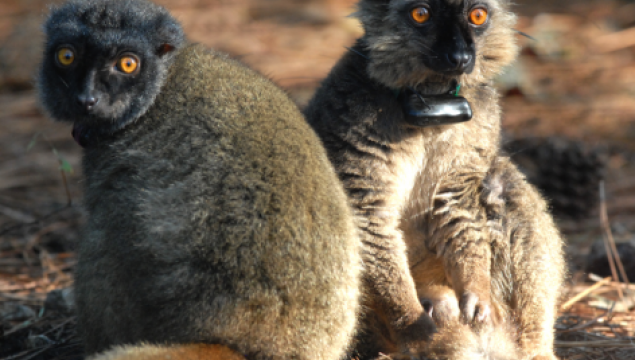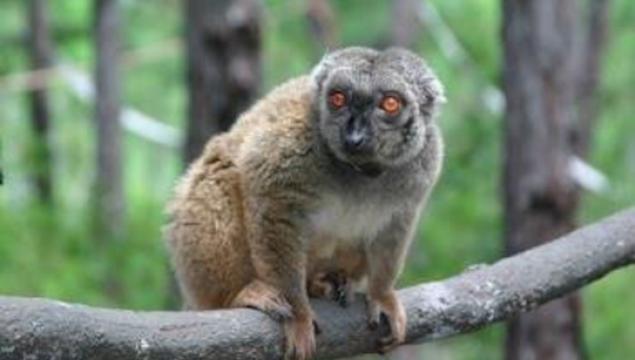The Introduction of Artificial Habitat Structures in Two Troops of Sanford's Brown Lemur!
Why This Project Is Important
One of the most important ways to support endangered lemur species is to share and disseminate vital research that can aid in their survival. The research subject in question, Sanford’s Brown Lemur is listed as endangered by the IUCN red list and faces many threats in the wild (habitat loss due to mining, logging, poaching and the pet trade). My study on the introduction of artificial vines into the enclosures of two troops of Sanford’s Brown Lemur at the Lemur Conservation Foundation (Myakka City, FL) reveals an easy and inexpensive way to supplement their habitat. Finding positive study results has inspired me to travel to this year’s EFP (European Federation Primatology) meeting 2013 in Antwerp, Belgium to present and share my research.
Project Description
Presenting my research on the improvement of lemur habitats at the European Federation for Primatology Meeting 2013 in Antwerp Belgium would be an invaluable research opportunity. This year’s theme is “Primates in Our Hands” and will focus on conservation with junior scientists being encouraged to attend. As a master’s student at the Chimpanzee and Human Communication Institute the chance to attend and present my research internationally is an invaluable opportunity. Over 38% of lemur species today are critically endangered and threatened with extinction and 80% of the forests on the island of Madagascar have been destroyed for precious hardwoods, agriculture, and human habitats. I believe my research can have a real impact if given the opportunity to share my work with others. This research is applicable both in captivity and in wild populations living on the island of Madagascar. Unfortunately, my university does not provide sufficient travel funds and grants to attend conferences internationally. My attendance at this conference will benefit many beside myself. I will share my research and in doing so benefit lemur populations in both captivity and the wild, meet new researchers and be exposed to exciting new studies, and upon return I will share what I have learned with my fellow graduate students. As a primatology student it is important to stay informed about innovative research in my field and currently Europe is home to many prominent primatologists, of whom I would like to learn from and meet.
Meet the Researcher

days left
funded
last
What Your Donation Can Help Us Do:
- Cover conference registration fee
- Airfare and in country travel expenses
- Meals and lodging
Recent Donors
Some donors may be hidden.





 Gifts to projects listed on SUPERIORIDEAS.ORG are received and processed by Michigan Tech Fund. Michigan Tech Fund is a tax-exempt organization under Section 501(c)(3) of the Internal Revenue Code acting on behalf of Michigan Technological University. It is the policy of Michigan Tech Fund that a portion of the gifts and/or income therefrom may be used to defray the costs of raising and administering the funds.
Gifts to projects listed on SUPERIORIDEAS.ORG are received and processed by Michigan Tech Fund. Michigan Tech Fund is a tax-exempt organization under Section 501(c)(3) of the Internal Revenue Code acting on behalf of Michigan Technological University. It is the policy of Michigan Tech Fund that a portion of the gifts and/or income therefrom may be used to defray the costs of raising and administering the funds.